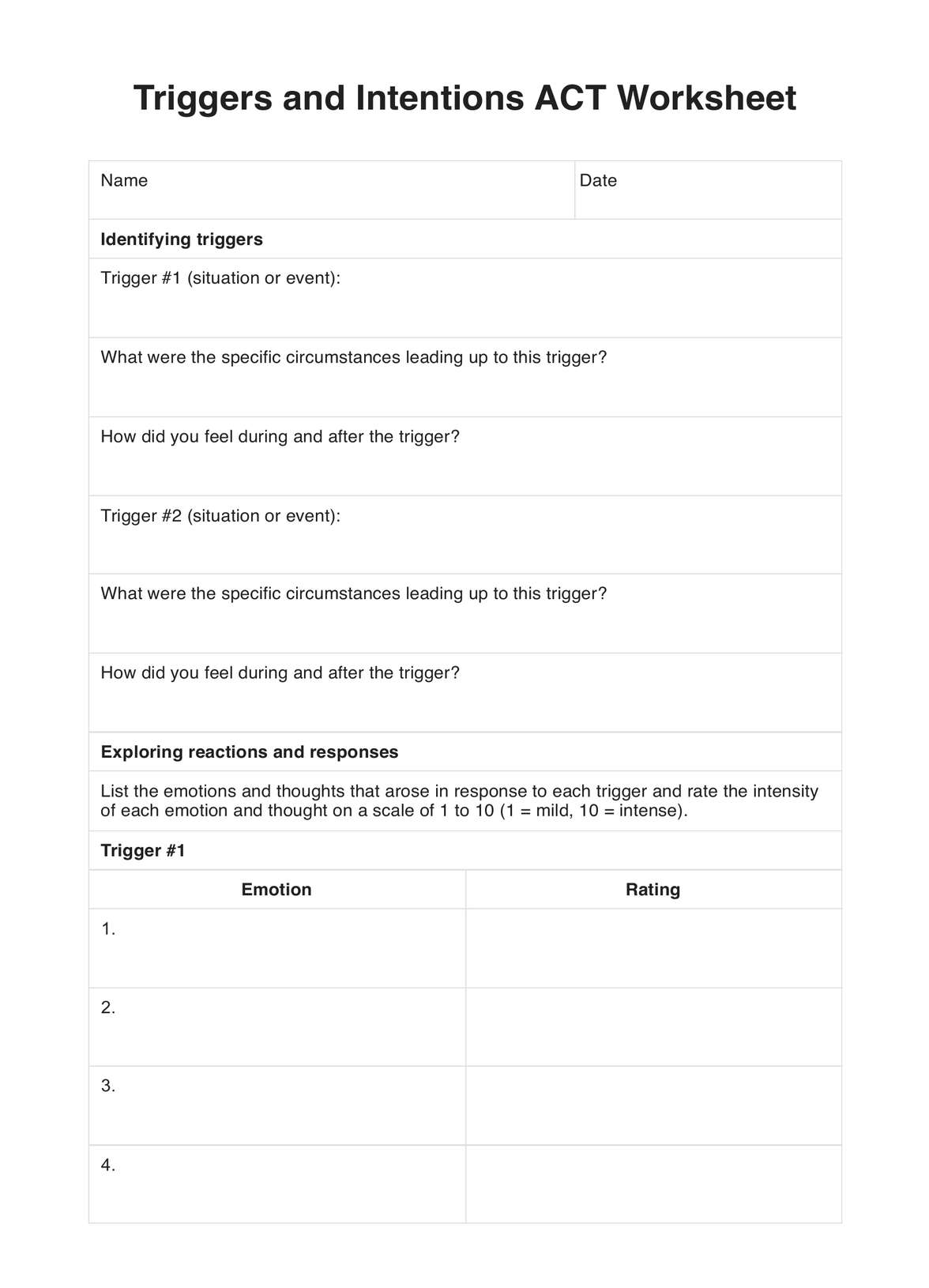The time can vary for each client, but it's generally recommended that the worksheet be completed throughout three to five sessions to allow ample time for reflection and discussion.

Triggers and Intentions ACT Worksheet
Use our Triggers and Intentions ACT worksheet to help your clients when they feel overwhelmed. Download a free PDF template now.
Triggers and Intentions ACT Worksheet Template
Commonly asked questions
The Triggers and Intentions ACT Worksheet allows self-reflection and encourages clients to think deeply about their situations. It can help a person identify triggers that may be contributing to problematic behavior, as well as create intentions that will lead them toward healthier coping strategies.
The Triggers and Intentions ACT Worksheet can be beneficial at any stage of the therapeutic process. It's especially effective for clients just starting out with therapy, allowing them to reflect on their past behavior and plan for future success.
EHR and practice management software
Get started for free
*No credit card required
Free
$0/usd
Unlimited clients
Telehealth
1GB of storage
Client portal text
Automated billing and online payments











